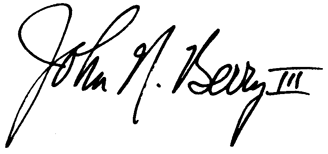Libraries: A Public Good
 Too much time watching MSNBC has almost convinced me that the United States is headed for social and political disaster in a maelstrom of tribal hatred, institutional destruction, fascist government, and xenophobic isolationism. Even some libraries and librarians seem to be trapped in the Trump turmoil and ruinous bickering. To me, this means it is time, again, to reaffirm our society’s need for public institutions, public goods that are accessible to all and supported by taxes because that is the most efficient and effective way to provide them.
Too much time watching MSNBC has almost convinced me that the United States is headed for social and political disaster in a maelstrom of tribal hatred, institutional destruction, fascist government, and xenophobic isolationism. Even some libraries and librarians seem to be trapped in the Trump turmoil and ruinous bickering. To me, this means it is time, again, to reaffirm our society’s need for public institutions, public goods that are accessible to all and supported by taxes because that is the most efficient and effective way to provide them.
The Trump chaos takes me back to 1985, when E.J. Josey was president of the American Library Association (ALA). At that time, as now, political forces and leaders were striving to cut the size and diminish the influence of government. Influential political voices and citizens wanted, as Americans always do, to cut taxes, reduce the cost of government, and especially keep the federal government out of local issues and the funding of local agencies. Even federal library support was under attack. Josey called together a group of his followers to plan his presidential program. They decided that the most useful platform would focus on developing responses to these threats. I was flattered to be a member.
My job in July 1985 at ALA’s annual conference was to describe the concept of public goods and relate it to libraries and library service. I thought, of course, that the conference was a great success and was delighted that the papers from it were preserved in Josey’s book Libraries, Coalitions, & the Public Good, published by Neal-Schuman in 1987, including my own paper “The Public Good: What Is It?” (p. 7–15).
Rereading it now seems timely, since the idea that public libraries are a public good seems to have faded: witness July’s Twitter tempest–causing Forbes article proposing that we replace libraries with Amazon.
In my favorite passage from the “dismal science,” economists Paul Samuelson and William Nordhaus define public goods:
Lighthouses. These save lives and cargos, but lighthouse keepers cannot reach out to collect fees from ships; nor would it serve an efficient social purpose for them to exact an economic penalty on ships who use their services. The light can most efficiently be provided free of charge, for it costs no more to warn 100 ships than to warn a single ship of the nearby rocks. We have here a positive externality, a divergence between private and social advantage. Philosophers and political leaders have always recognized the necessary role of government as provider of such goods.
More than a century earlier, in 1852, the trustees of the Boston Public Library spelled out the status of the library they wanted to create as a public good:
For it has been rightly judged that,—under political, social, and religious institutions like ours,—it is of paramount importance that the means of general information should be so diffused that the largest possible number of persons should be induced to read and understand questions going down to the very foundations of social order, which are constantly presenting themselves and which we, as a people, are constantly required to decide and do decide, either ignorantly or wisely.
That 1852 definition of public goods, and of the need for public libraries, could have been written today. It is, rightly, the best justification for libraries open and accessible to all, including immigrant families trying to get asylum at our southern border. Public libraries from New York to San Francisco provide means of general information to everyone. I have repeated this again and again in LJ over the years. It is crucial that we librarians recall the incredible importance of that mission and constantly remind all the people, especially the voters, of the responsibility of government at all levels to support it.

ALREADY A SUBSCRIBER? LOG IN
We are currently offering this content for free. Sign up now to activate your personal profile, where you can save articles for future viewing









Add Comment :-
Comment Policy:
Comment should not be empty !!!